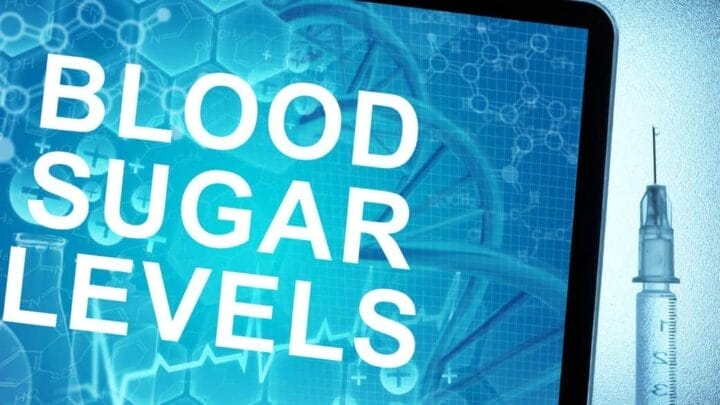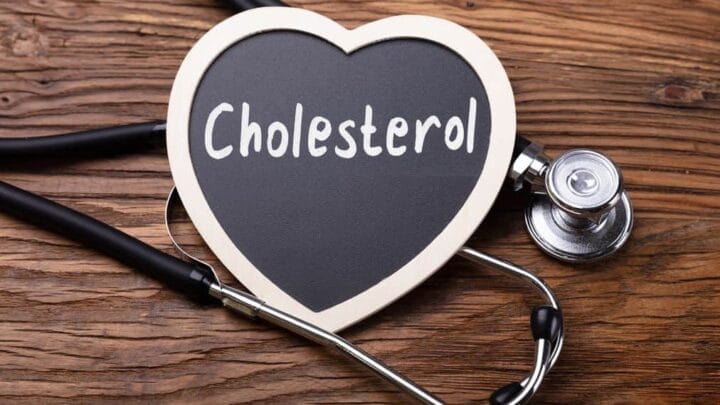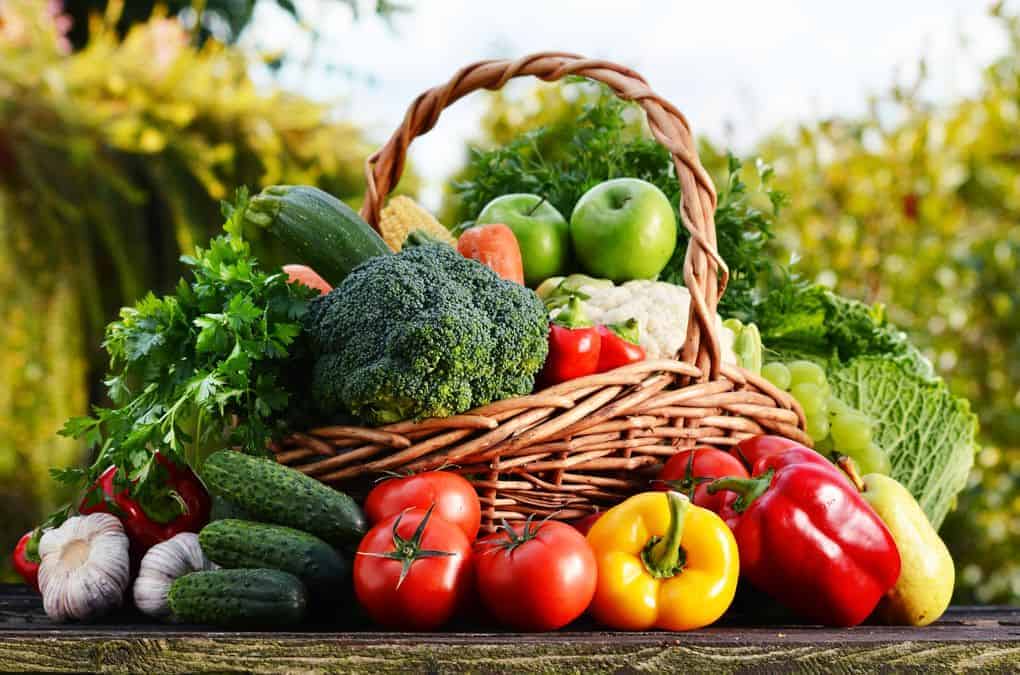
The healthiest vegetables – what they should be in any diet, not just a weight loss diet
A properly balanced, healthy diet is designed not only to aid weight loss when one is complaining of being overweight or obese. Nutrition experts also point to its enormous importance for maintaining full health. That’s why it’s a good idea to properly select the ingredients of all the food we eat, and one of the most important places should be occupied by vegetables. There are so many of them that they can make it difficult to compose a menu, so you need to find out which are the healthiest vegetables that should definitely be included.
Contents
What function do vegetables have in our diet?
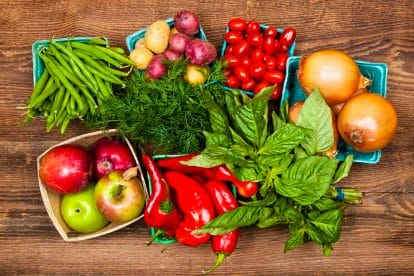
Before we get into a detailed description of the vegetables recommended by doctors and professional nutritionists, we need to understand what a huge role they have to play and why we can’t even do without them. Virtually every vegetable is a real vitamin bomb providing the body with almost all the nutrients necessary for its proper functioning, and this regardless of age.
They effectively prevent the development of many dangerous diseases, and very often support the process of their treatment, impossible without proper doses of natural vitamins and minerals, so necessary, for example, after intensive antibiotic treatment. We also appreciate them, although not in every case, for enhancing the taste of our favorite dishes. We can eat them on their own, and they also work well as a side dish for meat, vegan and vegetarian dishes. Their other health benefits are:
Low caloric content
So they are ideal for those on a weight-loss treatment, having fewer calories than the same amount of fruit, which can sometimes cause weight gain rather than loss. The caloric value of 100 g of some vegetables is as follows:
- green cucumber – 14 kcal;
- green lettuce – 15 kcal;
- radish – 16 kcal;
- Chinese cabbage – 16 kcal;
- sauerkraut – 17 kcal;
- tomato – 18 kcal;
- zucchini – 19 kcal;
- spinach – 23 kcal;
- cauliflower – 25 kcal;
- chives – 30 kcal;
- red cabbage – 31 kcal;
- broccoli – 34 kcal;
Of course, not all vegetables are low in calories, and consuming them in large quantities, despite the fact that they contain many health-promoting substances, can be counterproductive and instead of losing weight, we will start to gain weight. Such vegetables, which have a lot of calories per 100 g, include:
- potatoes – 77 kcal;
- peas – 81 kcal;
- olives – 115 kcal;
- garlic – 149 kcal;
- beans – 340 kcal.
- corn – 365 kcal.
Low content of simple sugars
Vegetables have far fewer simple sugars in their composition than fruits, which reduces the risk of uncontrolled increases in blood glucose levels. Therefore, a diet with a lot of low-calorie vegetables is recommended for diabetics, and fewer simple sugars also have a beneficial effect:
- prevention of cardiovascular diseases, including atherosclerosis or myocardial infarction;
- maintaining normal levels of triglycerides in the blood;
- prevention of obesity that threatens not only health, but also life;
- lower risk of cancer;
- better control of appetite, less snacking on unhealthy, fattening snacks between meals;
- less acid-causing bacteria that damage tooth enamel.
Higher natural immunity
Our barrier against various infections and diseases that have a bacterial or viral basis. If the diet lacks the recommended portions of vegetables, the functionality of the immune system, the production of fewer antibodies will immediately be affected, and the body will be constantly exposed to getting sick and will certainly not be able to cope with dangerous pathogens.
Better work of the digestive system
The heavy, unhealthy food, highly processed food, or fast food that dominates many people’s diets can cause disorders of the digestive system. Including vegetables in the daily menu will quickly eliminate them, promoting, above all, the regulation of intestinal peristalsis and improving digestion thanks to the presence of large amounts of dietary fiber.
What changes in the body does not eating vegetables cause?
Improperly nourished and deprived of vegetables, the body will rebel very quickly and we will begin to complain of more and more emerging ailments, and further disregard for the recommendations of dietary specialists can even have disastrous consequences. Proceeding in this way, we must expect the following ailments:
- difficulty in maintaining a normal body weight in accordance with the calculated BMI, the lack of the aforementioned fiber and other nutrients will make it difficult or even impossible to lose weight;
- faster aging, caused, among other things, by increased activity of harmful free radicals, which help eliminate precisely the vegetables that have numerous antioxidants in their composition;
- emerging eye disorders, resulting from increasing deficiencies of vitamin A, and its source is virtually any vegetable, especially spinach or broccoli;
- cardiovascular diseases, its irregular rhythm, hypertension and even atherosclerosis, the cause of which is, among other things, a deficiency of potassium, which we will provide by eating celery, potatoes, kohlrabi or spinach;
- weak, brittle and fragile hair, which falls out by the handful, and dry, acne-prone skin.skin, so it is worth eating legumes, onions or garlic, which is a natural, powerful antibiotic.
The healthiest vegetables recommended by nutritionists that you should eat every day
In our list of the healthiest vegetables, according to specialists in healthy eating, of course, we were guided by patriotic feelings, so we included only Polish vegetables that anyone can grow for themselves in the garden, on an allotment, or even in a box on the balcony. Enthusiasts of the more exotic and tropical we apologize, and among the healthiest vegetables in our country experts include:
Beets
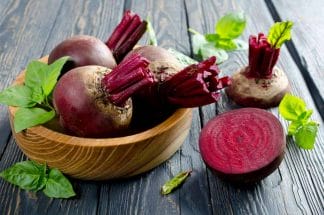
Beets take a fully deserved first place and are by far one of Poles’ most favorite vegetables. They can be prepared in a variety of ways, eaten both cold and hot. They are recommended for a number of conditions, including dangerous anemia, heart disease, counteract the development of neurodegenerative diseases, cancer and osteoporosis.
They also have antiviral properties, regulate blood pressure and the work of many internal organs, especially the intestines, kidneys and liver, and such a wide range of health-promoting effects are possible due to their content:
- vitamin A;
- B vitamins, thiamin (B1), riboflavin (B2), niacin (B3), pyridoxine (B6), folic acid (B9);
- vitamin C;
- vitamin E;
- vitamin K;
- minerals: zinc, phosphorus, magnesium, potassium, sodium, calcium and iron.
White cabbage
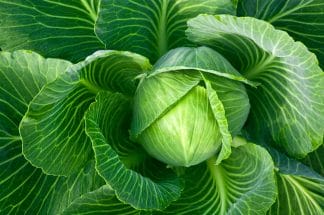
Another traditional Polish vegetable took the second place of the podium, after all, it’s hard to imagine the holidays without tasty bigos, although cabbage is worth eating not only in its pickled form. It is safe to say about cabbage that it is another vitamin bomb providing the recommended doses of substances to support the over-indulged health:
- vitamin A;
- vitaminB;
- vitamin C;
- vitamins E and K;
- rutin;
- cancer risk-reducing compounds, including indole-3-carbinol;
- phosphorus, magnesium, manganese, potassium, sodium, calcium and iron.
Such ingredients have a multifaceted effect on numerous aspects of health, supporting the immune system, aiding in the treatment of cold and flu conditions. Cabbage also accelerates the healing of wounds, is good for the condition of hair and nails, has an anti-inflammatory effect, counteracts anemia, cancers such as. testicles and breasts, relieves symptoms of diseases of the digestive system, such as stomach ulcers and urinary tract.
Onions
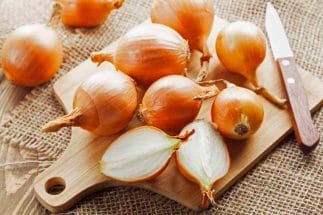
The lowest step of the podium is occupied by onions, the smell of which may not seem palatable, but because of their exceptional medicinal properties, they should be introduced into the daily diet. Eaten raw or hot, it not only enhances the flavor of dishes, it also helps with colds, especially its juice, which strengthens immunity and has antibacterial properties.
It is worth appreciating its effect on rheumatism, inflammation of the upper and lower respiratory tract, anti-cancer properties, expectorant, lowering too high blood pressure and cholesterol levels. As with other vegetables, the compounds found in onions are responsible for this:
- vitamin A;
- vitamin B1, thiamine;
- vitamin B2, riboflavin;
- vitamin B6, pyridoxine;
- vitamin B9, folic acid;
- vitamin C;
- vitamin E;
- flavonoids;
- fluorine;
- carotene;
- minerals: zinc, phosphorus, manganese, magnesium, potassium, sulfur, sodium, calcium and iron.
Carrots
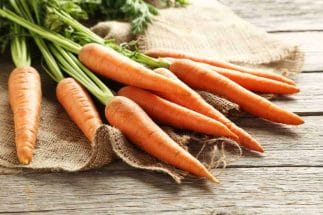
Just behind the podium was carrots, which should primarily be consumed by people who have vitamin A deficiencies in their bodies. This is a very dangerous condition, leading primarily to eye disorders or problems with proper blood flow and clotting. We already know that carrots are low in calories, and in addition to solving vision problems, they are characterized by their effect of preventing constipation, regulating digestive processes, anti-cancer, anti-viral, strengthening immunity.
It reduces the level of “bad” cholesterol LDL in the blood, prevents blood clots, accelerates the healing of ulcers, just as garlic has an antibiotic effect. All this is due to such components as:
- alpha-carotene and beta-carotene;
- flavonoids;
- phenolic compounds, including chlorogenic acid;
- vitamin B, thiamine, riboflavin, pyridoxine and folic acid;
- vitamin E;
- vitaminK;
- minerals: zinc, phosphorus, magnesium, molybdenum, potassium, sodium, calcium and iron.
Parsley
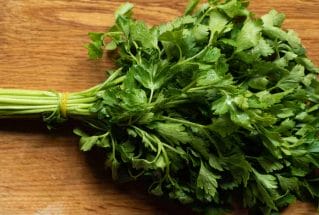
Both of its parts, both the green root and the white root, are obligatory ingredients in many salads, including the vegetable salad particularly beloved by Poles. Parsley’s positive impact on health is indisputable, and it also has wide cosmetic applications. Of its most important properties, it is worth mentioning the alleviation of symptoms of digestive disorders, antiseptic effect and breath freshening.
Through its diastolic properties, it reduces pain, also improves the functioning of the kidneys, helps remove toxins and excess water from the body, accelerates skin regeneration processes, regulates the level of sebum secretion, so it helps fight acne. This is favored by its composition full of:
- vitamin A;
- B vitamins;
- vitaminC;
- essential oils;
- amino acids;
- flavonoids;
- fiber;
- mineral salts: zinc, phosphorus, magnesium, manganese, copper, potassium, sodium, calcium and iron.
This is, of course, our subjective selection of the healthiest vegetables, everyone is bound to have his or her own favorite set, the important thing is to consume them regularly and in the amounts recommended by specialists in healthy eating.
Sources:
- https://www.healthline.com/nutrition/benefits-of-beets
- https://www.healthline.com/nutrition/benefits-of-cabbage
- https://www.healthline.com/nutrition/best-time-to-eat-onion
- https://www.healthline.com/nutrition/onion-benefits
- https://www.healthline.com/nutrition/carrot-juice-benefits
- https://www.healthline.com/health/carrot-seed-oil
- https://www.healthline.com/nutrition/parsley-benefits
- https://www.healthline.com/nutrition/parsley-root


